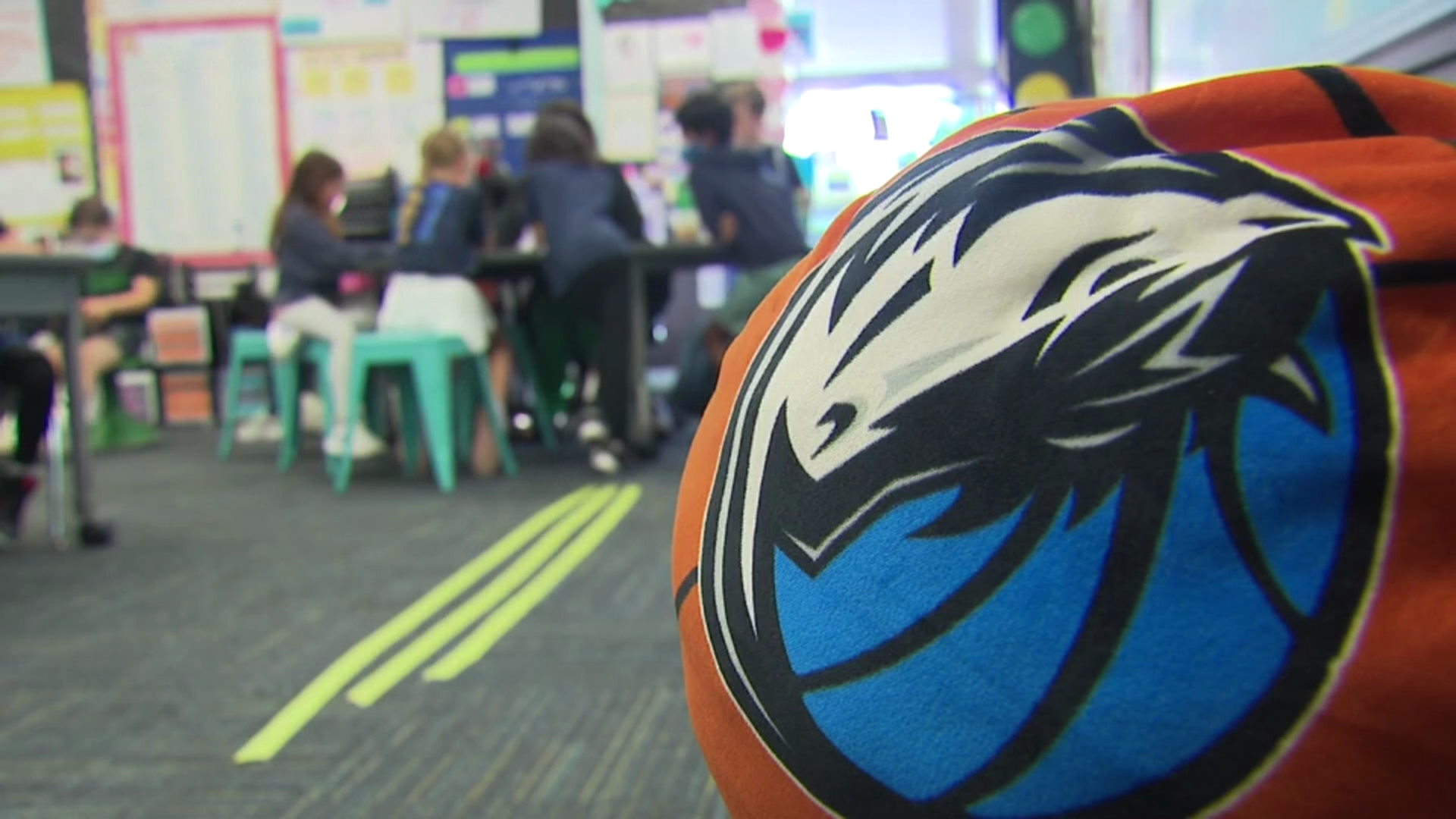Research shows that unborn children diagnosed with tumors in utero may not need surgery or radiation treatments.
A neuroblastoma is a malignant tumor that develops from nerve tissue in infants and children, according to the National Center for Biotechnology Information. It can be deadly in older children, but it can also spontaneously regress in younger babies, Dr. Stan Goldman said.
"Understanding the biology of this very fascinating tumor has led us to increase our aggressiveness in older kids and step back from younger kids and say, sometimes doing nothing is the best medicine," he said.
Goldman, a pediatric hematologist/oncologist with Texas Oncology who practices on the campus of Medical City Dallas, is one of several doctors across the country involved in a national study examining whether the standard treatment to surgically remove the tumor is the best practice.
"Prenatal ultrasounds -- which are very, very common -- may find stuff you're not looking for and so, the No. 1 thing is, when a family is faced with a diagnosis of a tumor in utero or soon after birth, they shouldn't panic," he said. "They should go to a children's oncology group center and speak with a pediatric oncologist or have their pediatrician or OB refer them to one."
Research suggests the tumor behaves differently in infants compared to older children.
Other studies suggest that anywhere from 33 percent to 100 percent of the small tumors in young infants spontaneously disappear on their own with no treatment.
Local
The latest news from around North Texas.
One of those cases includes the baby of Stephanie Matthews, an NBC DFW producer, and her husband, Rich, an Associated Press videojournalist.
A sonogram at 16 weeks revealed that her baby had a small mass sitting above the left kidney. An MRI confirmed that it was a neuroblastoma.
"As soon as she said cancer, I really zoned out," she said. "I didn't really hear anything for the next 30 minutes when she talked to us. I just remember sitting there holding Rich's hand, thinking, 'How can this be? The baby's not born yet and they're already telling me he has cancer.' It was devastating."
"It was terrifying," Rich Matthews said. "We were terrified for him. We were terrified for us."
Goldman said the field is rapidly changing.
"You don't want to give false hope, so when the OB and perinatologist saw the tumor there (in Matthews' child), their area was expertise in diagnosing, 'There's a problem,'" he said. "So, they're heroes for doing that. It's our job to say what's the data about."
The Matthews did research on neuroblastomas and learned about Goldman and his findings.
"He was the first person to tell us many neuroblastomas diagnosed in utero actually go away, almost like magic," Rich Matthews said.
MRI and sonogram technology has gotten so good that they pick up things that would have gone unnoticed in the past, his wife said.
For most infants, the tumor goes away and does not need surgery, chemotherapy or radiation therapy, Goldman said.
"It was such a weight lifted off your shoulders," Stephanie Matthews said. "I still had to carry him the rest of the way, but just the fact that there was hope out there was such a relief."
Her son Austin was born in September 2009. He was "a beautiful, happy baby -- as cute as those.newborn babies can be -- a little bruised from coming out, a little squished up," she said.
But the tumor was still inside him.
Sonograms and blood tests every three months monitored it. As Goldman recommended, they watched and waited.
"And Dr. Goldman told us, at any time, if this tumor grew or spread, we could take him to surgery," Matthews said. "If we decided we didn't want to watch and wait anymore, we could have this taken out. It was totally our decision."
One month led to the next. Austin celebrated his first birthday in 2010. Another sonogram the next month revealed that tumor that had changed.
"I saw the doctor, and he said, 'This is really great. This is the last time I'll see you,'" Matthews said. "And I thought, 'Is he leaving?' And no, it's gone, totally gone. They couldn't find it on the MRI or the sonogram. It's over. He doesn't have to worry about this anymore. And I asked, 'I don't' even need to put this down on his seventh-grade physical when he wants to play basketball?' And he was like,'No.'"
Austin had just started talking.
"And so he kept saying, 'Wow, wow, wow, wow,' which was exactly what I was thinking," Matthews said.
At 15 months, Aussie is busily keeping up with his older sister, Avery, with no hint that he lived with an uncertain future for a few months.
"We watched, and we waited, and we're very blessed because we know it doesn't happen this way for all kids," Matthews said. "As far as we're concerned, Aussie's cured."
"I look at him and I see his smile, and I see love, hope," her husband said. "It turned out so much better than we'd ever hoped and ever dreamed. And I want other parents to know that while it may be more difficult than our battle because ours was nothing, that it's worth fighting and doing everything you can."




